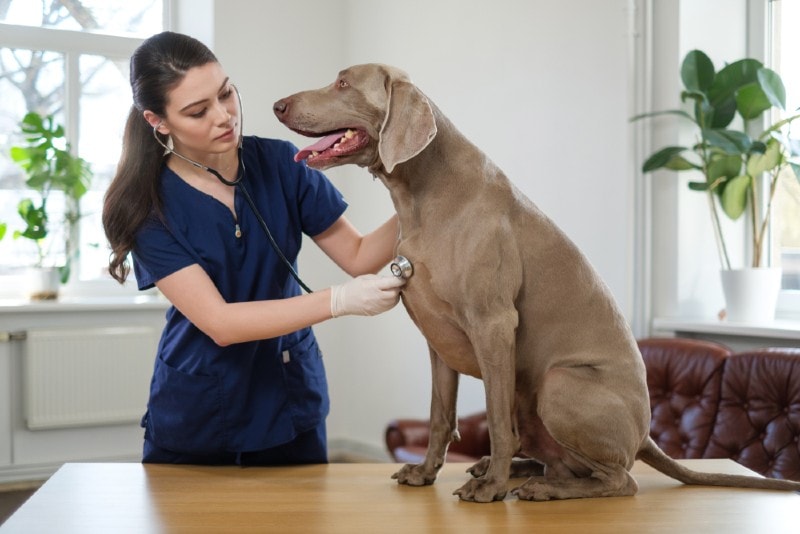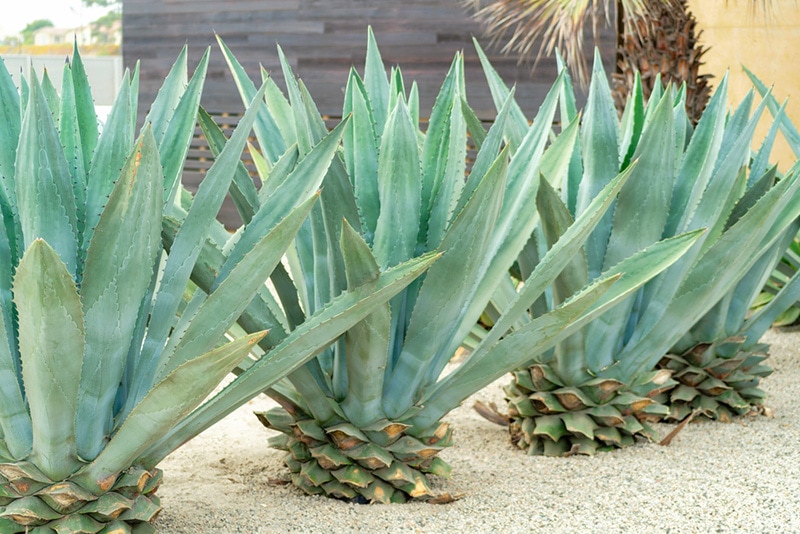Unlike puppy and adult food, “senior dog food” isn’t technically a type of food. The AAFCO does not list specific nutritional standards for senior dogs as they do for puppies and adults. However, you’ve probably seen senior dog foods on the shelf of your local pet foods store. So, what’s all that about?
Well, as dogs age, they’re likely to develop a variety of health problems. For instance, many older dogs have joint problems (just like older people). Senior dog foods include a range of added ingredients that may help slow the progression of these problems.
Beyond that, most of these senior dog foods are exactly the same as adult dog foods. Some have a lower caloric amount, as senior dogs are often less active. However, this will vary.
Based on this information, some dogs may benefit most from senior dog food when they begin to show signs of aging. If your dog has eye, joint, or skin problems, senior dog food may be able to help. There are several factors to consider, such as the diet your dog is already eating. Therefore, there is rarely a one-size-fits-all age when your canine needs to switch.
To help you figure out when to put your dog on senior dog food, let’s take a look at all the factors you should consider.
Factors to Consider When Switching to Senior Dog Food
Here are some of the most important factors to consider when switching your dog to senior food. As you’ll notice, age is not one of them.
- Health Conditions: If your dog develops health conditions associated with old age, you may want to switch them to senior dog food. For instance, joint and kidney problems are usually catered to in senior dog foods. When in doubt, speak to your vet. Some dogs may benefit from a veterinary diet instead of a senior diet.
- Weight Gain: Older dogs may not be as active as they once were. In the case that your older dog starts to gain weight, you may want to choose a senior dog food with lower calories. On the other hand, a weight-control adult food may be suitable, as well.
- Weight Loss: Some older dogs lose weight instead of gaining it. If this occurs, be sure to visit the vet to rule out underlying health problems. If your dog does not have an underlying health issue, then you may want to feed them slightly more calories. In this case, work with your vet to select a senior food with increased calories. Senior dog foods vary widely in calories, so don’t assume that a dog food includes more calories simply because it is marketed for seniors.
- Current Diet: High-quality adult dog foods often contain the same nutrients as many senior dog foods “add”. For instance, you’ll find glucosamine (a common joint supplement) in many quality adult foods and many senior dog foods. If your dog is already eating one of these quality diets, there is rarely any need to switch their food.

Common Misconceptions About Senior Dog Food
There are many common misconceptions about senior dog food. Let’s take a look at some of them so that you won’t switch your dog to senior food at the wrong time.
- All dogs need to switch to senior food at 7 years old. There is no exact age that a dog needs to switch to senior food. Some dogs never need to switch to senior dog food, while others may need to switch as early as age five. For this reason, rely on other indicators besides age.
- All senior dog foods are the same. There is no legal definition of a “senior” diet. While some senior diets are low in calories, others are much higher in calories. Therefore, always check the nutritional label when choosing a food, as they can vary substantially.
- Senior dogs need lower protein. There is no indication that senior dogs need less protein. A low-protein diet can be harmful to many older animals, as it may cause more muscle loss. You can find senior dog foods with increased protein, and some with decreased protein. It is unclear if increased protein is helpful at this age, but we do know that decreased protein is not optimal.
- Senior dog foods are low in phosphorus. Phosphorus has been linked to kidney disease in dogs. Therefore, many people assume that all senior dog food is low in phosphorus. However, this is not true. Many do not control the level of phosphorus in their dog food. For this reason, a veterinary diet is often best for dogs with serious kidney problems.
- Senior dog foods are low in sodium. Many people also assume that senior dog food is low in sodium since many elderly people need low-sodium diets. However, sodium levels in senior dog food vary widely, and not all older dogs need controlled sodium levels. Generally, restricting sodium is considered unnecessary for many older dogs.
- Older dogs need more fiber. Excessive fiber intake is not necessarily recommended for older animals. There are some cases where high fiber may be appropriate, such as older dogs that are gaining weight. However, high fiber can make underweight dogs eat too little, increasing their weight loss.
- All seniors need supplements. If your canine is eating a quality diet, then they do not need a supplement in most cases. While certain conditions may call for supplementation, the average older dog likely doesn’t need any extra vitamins or minerals. All supplementation is prone to side effects, so be sure to check with your vet before starting your dog on any supplements.

Is Senior Dog Food Necessary?
No. Senior dog food is absolutely not required for most dogs. While some dogs may benefit from very specific senior dog food formulas, the average senior canine can continue eating high-quality adult food. Senior animals that are healthy and in good body condition likely do not need to switch foods.
However, dogs with diseases often seen during aging may want to switch foods. For instance, kidney disease, arthritis, and diabetes are often catered to in senior diets. Still, these diets differ substantially. Therefore, you’ll need to work with your vet to determine the best diet for your senior. Don’t assume that all senior dog foods fit the bill.
- Determine proper dog food portions and ideal daily intake with our helpful calorie calculator here.
Final Thoughts
There are many great senior dog foods out there. However, this category is not restricted by the AAFCO, so anything can be called senior dog food. Recipes differ heavily. Some are high in calories, while others are low in calories. Many have controlled sodium and phosphorus amounts, while others do not.
Many senior dogs do not need dog food specifically designed for older canines. Instead, a quality, balanced adult dog food is just fine for most. However, dogs with health problems commonly associated with aging may do best with a senior dog food of some sort. Arthritis, heart conditions, and kidney problems are often considered when companies design senior dog food.
Still, senior dog food differs so widely that reading nutritional labels is vital. For instance, many differ widely on calorie content. If your dog is gaining weight in old age, you don’t want to put them on a formula that assumes all older dogs lose weight. This may only make their weight gain worse.
Featured Image Credit: Olena Yakobchuk, Shutterstock











